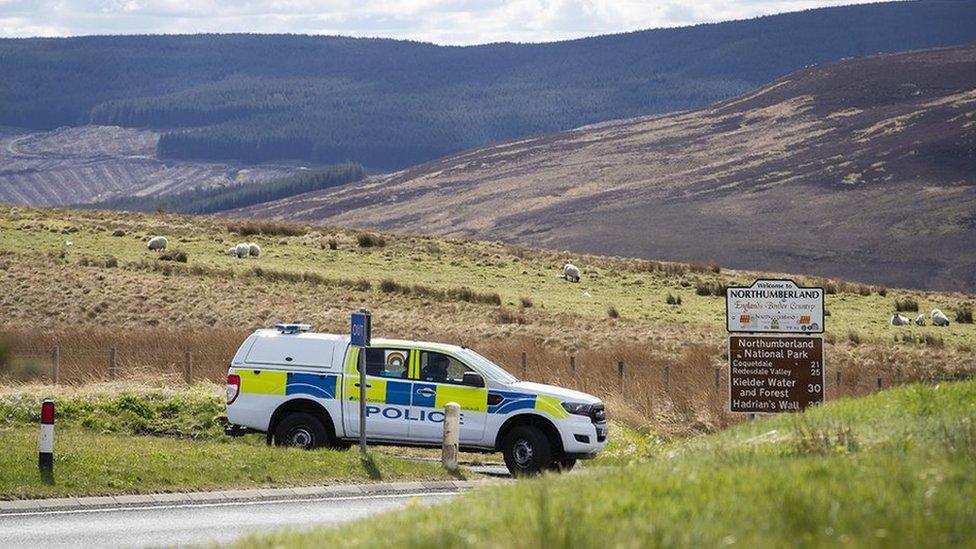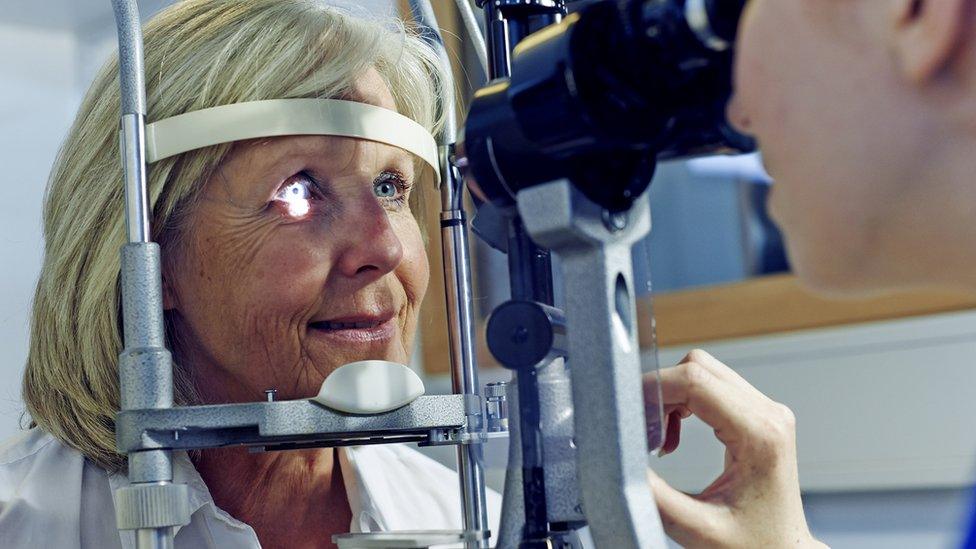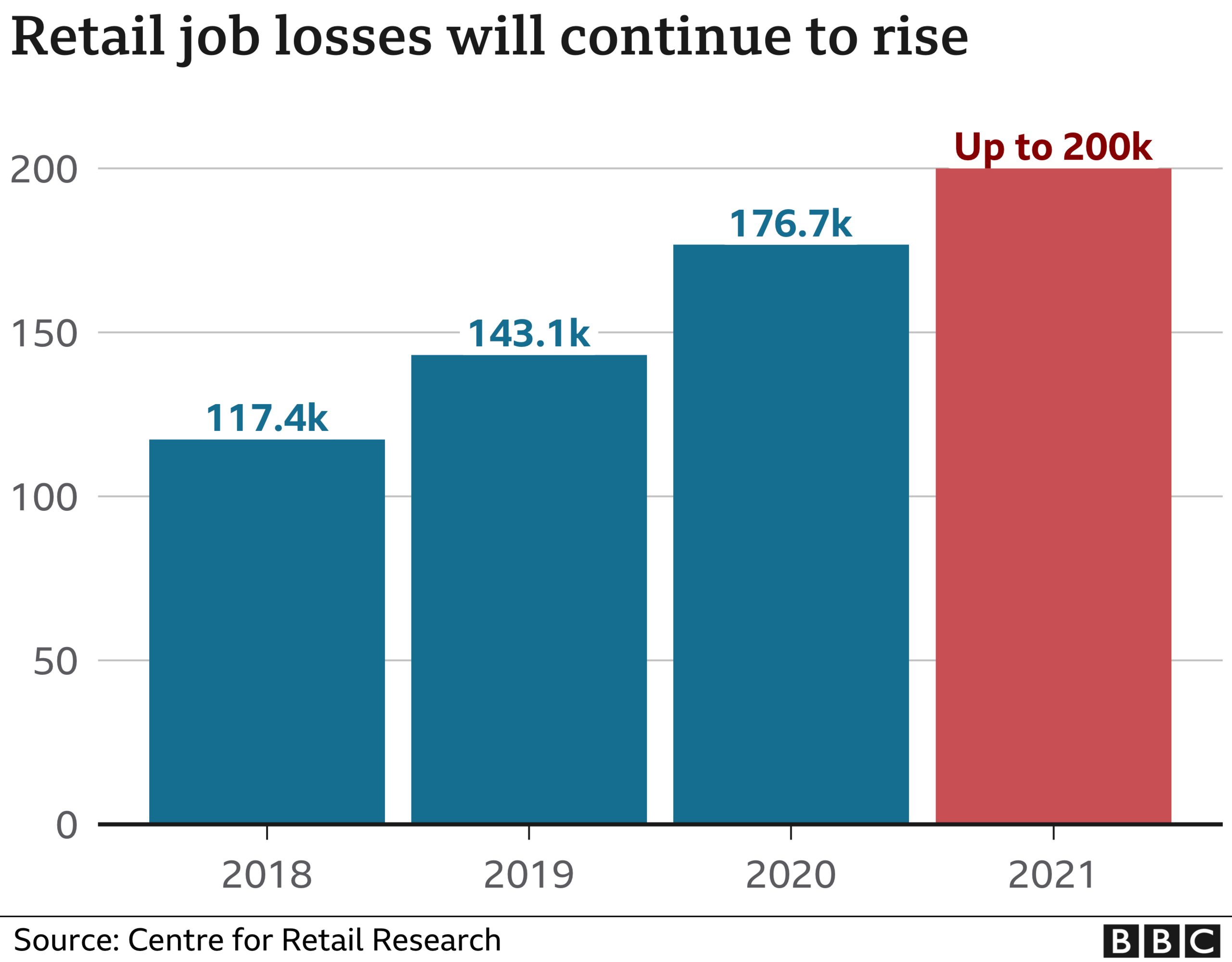Covid-19: Rule-breakers, eyesight warning and retail gloom
- Published
Here are five things you need to know about the coronavirus pandemic this Tuesday morning. We'll have another update for you at 18:00 BST.
1. Warning for rule-breakers
The UK's most senior police officer, Dame Cressida Dick, says her officers are still breaking up house parties, secret gambling gatherings and raves. She warned rule-breakers they were increasingly likely to be fined, with 8,000 penalties issued in England and Wales since November. See the powers the police have. The government has also said it could impose even tougher restrictions if people fail to follow those already in place. Here are some of the steps they could take, but why, according to our political editor, there's little political appetite to do it. Meanwhile, travel rules are getting stricter. Pre-departure Covid-19 testing will be required for UK arrivals from Friday, and the UAE has been removed from the safe travel list.

Police patrols were stepped up around the Scotland-England border around Christmas

2. Supermarkets cracking down
Morrisons has said it will now refuse entry to shoppers without face coverings - and who refuse to wear masks offered by staff - unless they are medically exempt. Sainsbury's says staff will challenge those not wearing a mask or who are shopping in groups. We explain more here about how to wear a mask and who might be permitted not to - for example, those with certain medical conditions. The government says those who are exempt shouldn't have to show written evidence, but you can download or print exemption cards, external if you'd feel more comfortable with one.
How to wear your mask. Hint: it's not any of these three options

3. Eyesight under strain
So many of us are spending more time staring at a screen right now and an eye health charity is recommending we learn the "20-20-20" rule to protect our sight. Fight for Sight advises looking at something 20 feet away for 20 seconds, every 20 minutes you're working at a screen, in order to reduce eye strain. The charity also commissioned a survey of 2,000 people which found more than a third believed their eyesight had worsened in the past year. It says the number of us getting regular eye tests is also down and is urging people not to miss their appointments.


4. High Street gloom
It sadly comes as no surprise to learn that 2020 was the worst year on record for UK retailers, especially those focused on clothing and homeware. Food bucked the trend, particularly over Christmas, with the highest ever festive spending on groceries. But overall, retail sales declined by 0.3% across the year, and non-food by nearly a quarter, the biggest annual dip since the British Retail Consortium began collating the figures in 1995. The BRC says many retailers are struggling to survive and the government should extend the business rates holiday to save jobs.


5. Hotel rule change helps parents
A father who'd campaigned for a change in the coronavirus rules to make life easier for non-resident parents to see their children has welcomed a government rethink. Previously, parents could visit children they don't live with during lockdown, but restrictions prevented them from staying overnight in a hotel. Ex-BBC journalist Tom De Castella said the ban "had a massive bearing on seeing my daughter", who lives a three-and-a-half hour drive away from his home. Now the rules have been rewritten, he's relieved. "This is about building a bond with your child, it's crucial to their development," he added.

Tom De Castella said the rethink was "great news" for parents like him

And don't forget...
Find more information, advice and guides on our coronavirus page.
Plus, three vaccines are now approved for use in the UK, but there are many differences between them. BBC health correspondent Laura Foster explains.


What questions do you have about coronavirus?
In some cases, your question will be published, displaying your name, age and location as you provide it, unless you state otherwise. Your contact details will never be published. Please ensure you have read our terms & conditions and privacy policy.
Use this form to ask your question:
If you are reading this page and can't see the form you will need to visit the mobile version of the BBC website to submit your question or send them via email to YourQuestions@bbc.co.uk, external. Please include your name, age and location with any question you send in.

LACKING MOTIVATION?: 6 hours of dance hits to help you stay energised all day long
THE NAKED SCIENTISTS: Why are people catching coronavirus on purpose?
